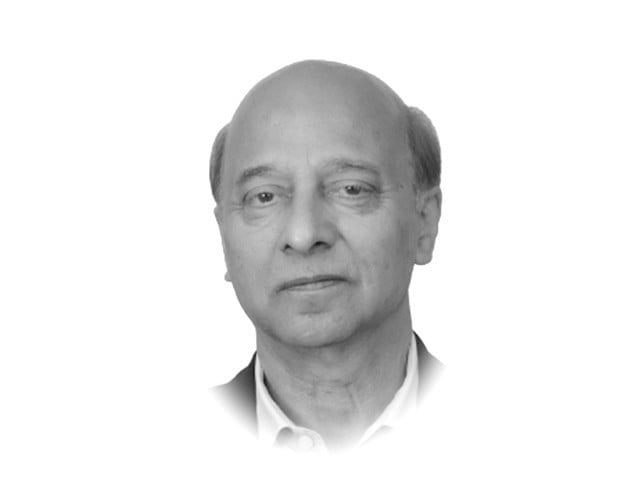
The fireworks at Square One in Mississauga (next to Toronto) on July 1 is a regular feature every year as much as in other Canadian cities. It marks the annual Independence Day and draws thousands of enthusiasts from and around this bustling city.
As the crowd watched the fireworks display this year, hardly any police was visible. The only cops we spotted were those who had crooned off some of the roads or were guarding the entry and exit points — mostly to regulate the traffic. When the fireworks show ended, the crowd dispersed without any signs of rush and anxiety. No trampling or pushing or shoving, no horns. Everybody waiting for his/her turn on the way out.
While moving to the car park I wondered how it would look like at the end to a similar assembly back home in Pakistan. Hard to imagine smooth-sailing out of a crowd of thousands.
Even on the busy highways and city boulevards you hardly come across a cop except for the occasional car patrols. No police sergeant at critical road intersections but the traffic flows uninterrupted.
The only explanation; fear of consequences if caught in violation of law; certainty of punishment with certain consequences is one fear that induces every citizen here in Canada into submission to law and regulation. One misstep and be ready for the penalty.
This reminds me of a speech that the then police chief had given at an international security conference at Ottawa, the capital, in 2012: Our primary guiding principle is to prevent any harm to public life and property. Protection of the public interest, the police official said, is our primary obligation.
A glance at life in Canada delivers living proofs of that principle. The police may not be visible on the roads or at busy shopping malls but is omnipresent through a very efficient and coordinated public surveillance mechanism.
Not that this makes Canada heaven on earth with no crime but the life in general is safe as well as peaceful for all citizens. No fear of any wrongdoing or excess by the police, which largely is friendly, very helpful and cooperative.
This invariably triggers a comparison with the police in Pakistan, which is seen as predatory, cruel, extractive and complicit in crimes.
Our own experiences with the police at home have often been so painful and frustrating that you never wish to come in contact with them. Events of recent months only reinforces this image of police as a predator force that is ready to dance to the tunes political bosses or abuses its authority for extraction.
What happens to political workers and common people when implicated in criminal cases — often with mala fide intentions — at the hands of police in Pakistan is almost unthinkable in Canada, where the best way of survival is compliance with law and regulation. No escape at all if caught red-handed.
But certainly not in Pakistan, where the police in general uses its authority to extract concessions and bribes by implicating even the innocent and distantly connected people as accused and accomplices in cases.
Also, the ongoing mantra against PTI leaders and workers — i.e. charge, harass, arrest, detain, blackmail — is inconceivable in developed and rule-of-law based societies such as Canada where crimes do happen. Incidents of excesses and high-handedness by police — at times based on racial bias, malafide intent or circumstantial assessment — do happen here. But the police in general is there to help, assist and protect. If caught for neglect or proven as having wilfully acted, officials can’t evade scrutiny and eventual punishment.
Beside the dated criminal procedures and civil procedures code (CrPC, CPC), the civil-military ruling elite is equally responsible for the high-handed, often criminal conduct of the police in Pakistan. It is used as a facilitating instrument for political objectives — thus no real scrutiny or a desire to reform the British-era CrPC and CPC which arm the police with draconian and exploitative powers. Invariably people at large end up bearing the brunt. The disconnect and distrust between the public and the police is the obvious consequence.
Published in The Express Tribune, July 22nd, 2023.
Like Opinion & Editorial on Facebook, follow @ETOpEd on Twitter to receive all updates on all our daily pieces.


1722586547-0/Untitled-design-(73)1722586547-0-165x106.webp)


1732326457-0/prime-(1)1732326457-0-165x106.webp)








COMMENTS
Comments are moderated and generally will be posted if they are on-topic and not abusive.
For more information, please see our Comments FAQ